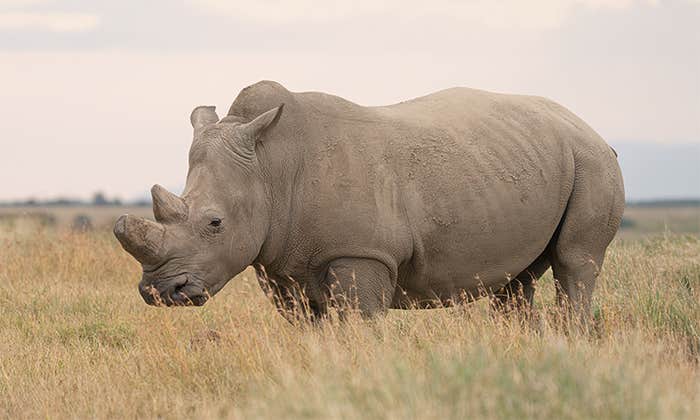When Dalton Conley, a professor of sociology at Princeton University, talks about race, his authority is based on more than academic research. Every day he straddled the lines of race in the New York City housing project where he grew up in 1970s, a white kid, son of bohemian artists. The apartment complex, Masaryk Towers, then and now stands in a largely Puerto Rican and African-American neighborhood on the Lower East Side. As Conley explained when he stopped by the Nautilus office last week for an interview, his childhood was like a social science experiment. “Even when you flip the script and you are the minority, you see the stark advantages of whiteness and the divisions of social and cultural capital,” he said.
Traversing the flagrantly unequal means of living in Manhattan shaped the path of Conley’s career. “I made a daily journey from my home neighborhood to the wealthier area in New York’s Greenwich Village, where we were lying about our address so I could go to school,” he said. “I think that’s what really made me aware of socioeconomic disparities and made me even as a child start to realize the kind of level of inequality and lack of social mobility and lack of equal opportunity we have in the United States.”
Given the history of using biology for political means, it’s really important to say that race as we know it is not a biological concept.
After earning a Ph.D. in sociology, Conley wrote about his childhood in a 2000 memoir, Honky. He is the author of three other books that trace the social currents that drive upward and downward mobility in America, and how they leave a lasting mark on families. He had begun to feel, though, sociology was not getting him as far as he wanted to go. “I had gone down a rabbit hole to try to understand what is the true effect of income and wealth on kids’ outcomes, and what is spurious, and what makes up that spurious effect?” he said. “Is it cultural? Is it genetic?” Ultimately, he said, “I decided to go into the belly of the beast and try to understand how genetics might be influencing how kids turn out socioeconomically.”
In 2009, Conley earned a Ph.D. in biology, specializing in genomics. The results of his biological education appear between covers in 2017’s The Genome Factor: What the Social Genomics Revolution Reveals About Ourselves, Our History & Our Future, co-written with Jason Fletcher, a professor of public affairs with appointments in sociology, applied economics, and population health sciences, at the University of Wisconsin-Madison.
In our Nautilus interview, Conley confronted the controversies that infix discussions about race. A recent podcast interview between author Sam Harris and Charles Murray, coauthor of The Bell Curve, the notorious 1994 book that delves into race and IQ, inspired a volley of exchanges. Throughout, Conley spoke with calm conviction, drawing from both biology and sociology, to bolster his view that race is not a scientific category. Genomics, he explained, is now filtering out the myths and misinformation, proffered by both the political left and right, about race, intelligence, and success.
You write that “race does not stand up scientifically.” Why?
Race as we treat it in the United States—black, white, Hispanic, other—the one-drop rule, otherwise known as the law of hypodescent, where if you have any black ancestry, African American ancestry, you’re classified as black—these commonsensical notions of racial divisions in the United States really do not map onto genetic clines or ancestry differences in the human population. In fact, those real ancestry differences belie our notions of race.
Are you saying there’s no genetic component to race?
There are definitely genetic ancestry signals in our genomes that are easily recognizable. For example, if someone is 100 percent, 50 percent, 25 percent, or even 12.5 percent Ashkenazi Jewish, that is very identifiable in the genome. If someone has African ancestry we can recognize that in the genome. The more fine-grain you get, either you need really detailed genotyping information or a big sample size to really identify small differences, like, say, between Swedish and German, or something like that. But there are definitely signals of our historical origins in the genome. There’s no denying that. My point is that they don’t actually reinforce what we call race socially, and what we act on in our daily lives in the United States or elsewhere, for that matter.
How do you define race?
I define race as a social identity in which you do not choose your identity, unlike ethnicity. Ethnicity is something that’s affiliational. I’m actually an eighth Irish but on St. Patrick’s Day, especially given my last name is an Irish last name, I can choose to be 100 percent Irish, drink green beer, and wear all green. But if I said, “Well, I’m also English,” or “I’m also Jewish,” people wouldn’t say, “Well, that doesn’t make sense. Which is it? Choose.” It’s individual, it’s affiliational, you can have multiple ethnic identities. Race is something that’s socially determined. I don’t choose my race. Society around me, how people react to me, defines my race. Generally, even though there is a robust multiracial movement, you can only have one race. In fact, to the extent to which the scholars and activists are pushing the idea of multiracial classification, especially since the 2000 census allowed more than one choice, that’s pushing what we call race more toward what sociologists would call ethnicity.
Race usually also implies a power differential. That’s why the boundaries of race are so policed, because there’s real stakes there. Now, I’m making this distinction between race and ethnicity that sociologists make. However, it’s not a hard line. Obviously there’s inequalities within ethnicity. Some ethnicities have higher status and higher associated incomes and so forth than other ethnicities. But that’s the fundamental difference between race and ethnicity. That’s all social, I would say.
Biologically, there are genetic clines that are more continuous distributions of the alleles, nucleotides, and repeats that you see in some populations at a higher prevalence than you see in other populations. Some people call it the continental ancestry because you can really recognize not just which continent people’s ancestors hailed from, but also even sub-continental, tribal identities that have unique genetic signatures that are passed on and we can see in our own genomes today. We all have the same genes, i.e., the same protein coding sequences, but there is significant variation between groups. Some of that has important consequences like Tay-Sachs or sickle cell, and some of it is just neutral accumulated mutations that don’t really matter much.
What compelled you to tackle genetics and race?
I feel that, absent our history, we could probably talk about continental ancestry and genetic clines productively, and investigate them and understand patterns of human migration and group difference with genetic tools at our disposal. Some people are doing that kind of research, learning that, for example, people came over to North American earlier than we thought. That’s partly evidenced by artifactual analysis, but also from genetic analysis. Learning about who mixed with whom in the New World has been very informed by genetic analysis. I think it’s all very interesting and very important to human sciences.
“The Bell Curve” authors were totally premature and over their skis scientifically, because there was no genetic evidence to analyze.
However, I think it’s important to, given the history of eugenics, the history of trying to essentialize biological differences, even the debate in the 19th century that put Darwin on the side of his erstwhile enemies, the religious conservatives—there was a debate called monogenism versus polygenism which was, “Are humans all one species or are they multiple species?” Darwin, based on scientific evidence, was arguing that we are all one species. Many people seized on his ideas in the late 19th century to argue that there were fundamental biological differences and used that to justify everything from imperialism and slavery to genocide. I think, given that history of using biology for political means, it’s really important to say that race as we know it is not a biological concept.
Speaking of controversy, what is The Bell Curve?
Richard Herrnstein and Charles Murray wrote this book in 1994 based on very limited data from the National Longitudinal Survey of Youth that the role of intelligence in society, and getting ahead, had increased, and concomitantly that the role of genes had become more important in determining success and who gets ahead and the role of environment had decreased. In fact, it was a very elegant, if slick, sophistic argument that the U.S. and other modern societies had become meritocracies much more than they were in the old boy days when women were excluded and Jews and blacks were excluded from elite institutions and so forth, such that the paradoxical consequence of becoming meritocratic was that the inequalities that do remain are based more on merit, and therefore are more intractable.
Add in the fact that as higher education became more important and a sorting ground for future spouses, then the more endowed genetically were increasingly not mixing up with everybody else but reproducing with each other. Therefore, in each generation furthering genetic disparities in intelligence and in socioeconomic success. They added a number of other arguments, like that we’re living or entering a period of dysgenics where lower ability people were having more kids than higher ability people, leading to an overall “degrading of the population” despite all the evidence of the Flynn effect, which is IQ has actually been increasing over the course of the 20th and 21st century with each generation. Lastly, they made an argument that these dynamics explained racial differences in success and in other outcomes, and that they were based on innate genetic differences between what we’ve called social races.
What’s wrong with The Bell Curve?
They were making this argument back in the mid 1990s, 1994, and there was no molecular data on a large scale available for analysis of humans. They were really, at the very least, totally premature and over their skis scientifically, because there was no evidence to analyze. All we knew about how important genes or an environment were back then came from twin studies and some adoption studies, and some other methods. But basically trying to infer how big an elephant is by looking at the shadow of the elephant, not observing the actual elephant itself. We hadn’t sequenced the human genome. More importantly, we hadn’t developed these chips that allow people to send in their saliva to 23andMe or Ancestry.com or some other lab and get a readout of their actual molecular sequence. Now, today that we can do that, and scientists have been doing that. Biological and social sciences have combined forces to do that for major studies, whether that’s medical studies or traditional social, scientific, and economic surveys. We can now actually pose the question that they posed over 20 years ago.
The answer seems to be yes, some genetics matter for success. That’s not deniable. But it’s not that genetics are becoming more important for socioeconomic success than they were in earlier birth cohorts in the 20th century. It’s flat. It’s not accelerating. If anything, there might be even some evidence of declining importance of genes for cognitive ability and for socioeconomic success. We have seen, for example, that the genetic effects on, say, height and on obesity have really ratcheted up as the environment has changed over the last hundred years. Today, your BMI is much more determined by your genotype than by your environment than it was 100 years ago.
It’s not that all genetic effects are going down or stable. Some are really becoming more important. Genetics of smoking’s become more important than environment today. But for intelligence and for socioeconomic status, how far people get in school, and all those kind of things, the evidence is just simply not there to support their claim that we’ve become more of a genetically stratified society than when we were in mid-20th century.
In a recent interview with Charles Murray, author Sam Harris said “there seems to be very little we can do environmentally to increase a person’s intelligence, even in childhood. It’s not that the environment doesn’t matter, but genes appear to be 50 to 80 percent of the story.” What do you think?
I had said that genes explain about 50 percent of most human behaviors, including cognitive ability. They’re rounding up. They’re taking the higher-end estimate to say 50 to 80 percent genetic. I don’t think there’s a consensus on that. I also think that’s a complete misreading of the relationship between the genetic providence of a trait and whether or not we can do something about improving it.
The left likes to say that there are no biological differences between any recognizable groups of people. And we just know that’s not true.
I’m talking to you right now. I can see you across the room. You’re wearing glasses. I had severe myopia and had LASIK surgery in my late 20s. Myopia in modern society is almost completely heritable. It’s almost completely 100 percent genetic. It didn’t exist in pre-modern societies, largely. It is a function of our environment, but in terms of who gets or does not get myopia, it’s almost 100 percent genetically determined. Yet we both cured our myopia, so to speak, with glasses and with surgery, so just because something is genetic doesn’t mean you can’t address it. I believe that’s true about cognitive ability or educational success, non-cognitive skills. Just because they have a genetic basis in a cross-section among a population today does not mean that we cannot address it.
The Flynn effect that I mentioned, that the average IQ has been increasing over the course of the 20th century, shows that even if there’s a genetic basis, fixing the environment, getting lead out of gasoline, getting rid of asbestos, becoming a more knowledge-driven, cognitively complicated society—there’s lots of theories about why the Flynn effect is occurring. But basically, generally improving the health and well-being does raise the average IQ of the population. I think there’s plenty of evidence of that. Again, just because something has a genetic basis does not mean that we can’t do anything about it.
Is there a genetic basis to intelligence?
I think that the general consensus in the behavioral genetics literature and the molecular genetics literature is that there is definitely some basis to cognitive ability that’s genetic. What percent is genetic, what percent is environmental, is up for grabs. In fact, there’s some evidence to suggest, although it’s controversial, that that itself varies by social position. A psychologist at University of Virginia, Eric Turkheimer, has shown that it appears as though when you’re in low socioeconomic status, if you’re growing up in poverty, the environment trumps genetics. Your impoverished environment doesn’t even allow your genetic propensities to rear their head, so to speak.
If you have two siblings, and one is genetically gifted and one’s not, they end up more similar because they don’t have the resources or the right environment to allow those differences to emerge. Only in high socioeconomic status families do you see the genetic-effect bloom, if you will, so that you actually see that differences are based on genetics in high SES families. So you can’t say independent of the social environment how much of IQ is genetic. That’s one view. The other view is that, what I tell people in shorthand, if you look at any behavior, it’s probably plus or minus about 50 percent environmental and about 50 percent genetic. Some are less genetic and some are more. Also, Eric Turkheimer coined what he called the First Law of Behavior Genetics, that all human behavior is partially heritable.
What does the political left get wrong about genes and race?
I think the left likes to say that there are absolutely no biological differences between any recognizable groups of people in the world. And we just know that’s not true from genetic analysis, from disease prevalence, from genetic disease prevalence across the world. We know that populations that live in high altitudes, for example, have developed genetic adaptations to that. We know that adult lactose tolerance varies by population, and where there were large domesticated mammals from which we drank milk as adults. So there are real differences. We can’t say that we’re all exactly the same biologically.
I think even as recently as the year 2000, the late Harvard biologist Stephen J. Gould said basically human evolution stopped 40,000 years ago or more, and everything you see, all the differences across the globe you see, are the result of the same blueprint essentially. The same human biology. But we know that, for example, increasingly there’s evidence that evolution has sped up. Meaning that segregation of alleles has sped up since the neolithic revolution 10 to 12,000 years ago. So that’s the part that the left clings to that’s not holding up scientifically.
What does the political right get wrong on genes and race?
The right just goes off the deep end in suggesting that there are real genetic basis of what we call socially as race or ethnic differences, and that most importantly, that these differences in genetic allele frequencies across groups explain controversial human behaviors like criminality and deviance, cognitive ability and other outcomes that we care about. They’ve really hung their hat on small effects. There’s something called the warrior gene, colloquially, the monoamine oxidase gene, which degrades neurotransmitters so that they can be reused. There’s group-level variation in the alleles in that gene, and it’s been associated with criminal activity, and lo and behold, people are making arguments that race differences in criminality are genetic.
Now it turns out that was a spurious effect. That was a chopsticks problem [discussed below], and it never replicated, and it’s been refuted over and over again. In fact, the leading journal Behavior Genetics refuses to publish single gene studies anymore because we now know that they’re probably false positives because, as I mentioned, any effects on behavior are teeny and spread across the genome, so it’s very hard to recognize a single effect of a particular gene and certainly not explaining group differences in observed behaviors. Yet the right refuses to see that scientific evidence, and is still stuck in 2003, when we thought that single genes explained big proportions of human behavior when they don’t, and they’re really just proxies for cultural differences.
What do you make of comparing IQ scores of blacks and whites?
There is no denying that there is a test score gap between blacks and whites in the United States. What the etiology of that is, is an entirely different story, however. It is too facile to claim that that’s genetically based, that the genetic differences between these two groups explain that test score gap. In fact, there’s plenty of evidence that’s not the case. For example, the test score gap has narrowed since the Civil Rights triumphs of the 1960s. If it was entirely genetically based or even predominantly genetically based, that should not happen, number one.
Number two, we just can’t factor out the environmental differences in history that we see between blacks and whites in the United States to come to some residual genetic comparison that will be clean. Even now that we can measure the genome directly like many of us are doing, that doesn’t help us in explaining cross population differences. The genomes of blacks and whites are different because of the fact that a lot of the genetic variation got truncated among the white population, the non-African population, due to the bottlenecking coming out of Africa, where the entire rest of the world, essentially, is populated by 1,000 to 2,000 common ancestors.
The right goes off the deep in suggesting that there are real genetic bases of what we socially call race or ethnic differences.
When there’s that kind of small population bottleneck, it eliminates a lot of the genetic variation that had built up over thousands of years. That genetic variation remains in African populations who do not experience that bottleneck. Of course, there’s been other bottlenecks, like Ashkenazi Jews in Europe in about the year 800. The Icelanders, an island population, is a huge population bottleneck.
Because of that fundamental difference in genetic diversity, you can’t compare the genomes between whites and blacks. They’re apples and oranges. So all the analysis that can generate what we call a polygenic score, for example, to predict an outcome in European populations, doesn’t predict in black populations. The whole genetic architecture is different.
You could analyze within a given ancestral population, say, Western Europeans, and one of the genes that more or less predicts who does better or worse on cognitive tests or non-cognitive skills, for that matter. But you could not then export those estimations to a different population such as a African-American population and run the same analysis. In fact, if you do that for something as neutral as height, it doesn’t work. What’s called a linkage disequilibrium structure of the genomes are different. In other words, the SNPs, the A-C-T-G that we measure and tag, are measuring different things in different populations. They’re approximal to different amounts of variation.
So, if you take a polygenic score for height that predicts a very good percentage, basically 50 percent, of variation in the white population in height, it does not predict very well in African-Americans. In fact, it predicts African populations to be, if I remember correctly, several inches shorter than they quote, unquote should be, based on the analysis of whites. There, we have an objective indicator. We have height. We can take the polygenic score for whites and port it over to African-Americans or Africans, and it simply predicts incorrectly. That is also true for any outcome, whether we did that for body mass index, cardiovascular disease, or intelligence, so we really can’t make the apples-and-oranges comparison. You can only compare within ancestral groups.
There’s the added issue that once you compare cross-groups, you’re confounding history and culture with genes because they’re both inherited together in what’s called population stratification, or the chopsticks problem. You could find many alleles, many genetic variants, that will predict chopstick usage if you analyzed a combined population of whites and Asians, but all you’re detecting, ultimately, is that certain alleles are more frequent in Asian populations and certain alleles are more frequent in white populations. It’s really not causing chopstick use, because if you looked within those populations, those alleles wouldn’t predict at all. They’re just correlated with these cultural traditions that are inherited. That’s one of the many big challenges in looking at racial differences or continental ancestry differences in any outcome, let alone for something as crazily controversial as intelligence.
What should we better understand about the interaction of genes and the environment?
There is a sharp line in the popular imagination between genes and environment. But that doesn’t really exist. Our environmental exposures are very much determined by our genetic propensity. So let’s say I had perfect pitch, which I have exactly the opposite of perfect pitch. I have a terrible ear for music. And I quickly learned that I’m no good at music. So yes, I had to take the clarinet in middle school. But the moment I could drop that, I dropped it. The kid who had an innate genetic propensity to perfect pitch and to rhythm probably got many more positive rewards for doing music in whatever form. And therefore put him or herself in environments that further nurtured that musical talent. You can easily see that with athletics. You know, we don’t dote on people like me at the Olympic training center in Colorado.
We don’t give all those environmental resources to people who are not genetically endowed. And even within a family, it’s the kid, we know that reading to kids when they’re very young increases verbal ability. We know that from experiments. But there are, even within the family, differences between the kids in how much they tug on their parent’s sleeve in saying one more story before bedtime. They are structuring their own environments to a certain extent.
Likewise, if you are in a certain environment, your genetic propensities may be completely ignored or quelched. If you’re the incredibly fast-twitch muscle, fine motor, or quick-reflex dexterity kid, born into a family of Asperger mathematicians—I’m sorry to use a cliched trope—you may not be able to fully express, or be supported in expressing, your innate athletic ability. And vice versa. If you’re the brainiac kid born into the family of the high school football coach, you wouldn’t be nurtured as much and the genetics wouldn’t flower.
So you really can’t even separate nature and nurture. And the pathways by which genes, when we talk about, say, IQ or something being 50 percent genetic, that includes those pathways through the environment. The fact that a genome may lead you to an environment that then creates a virtuous circle to increase your cognitive ability or certain aspects of your cognitive ability. Just like showing early athletic talent leads you to be swept up into the better teams and longer practice hours. So I think we have to keep sight of that intertwining braiding of nature and nurture before we imagine that we’re just going to select a baby with a high score on this or that, and our job is done.
What will we know about genes and intelligence by 2025?
What will happen by 2025 is that we will have polygenic scores that predict a range of outcomes much better than they do today. So that 10 percent predicting cognitive ability or education will at least double by then. We will be no closer to a scientific understanding, or we’ll only be slightly closer to a scientific understanding, of how those genes rear their heads so to speak, or have their effect.
The kid who had an innate propensity for perfect pitch got many more positive rewards for doing music in whatever form.
For example, we don’t know if the effect of genes on, say, IQ or on educational attainment, works through central nervous system, on brain size or cortical surface area, or through height and physical attractiveness. We know that physically attractive children get more attention from parents, from teachers, from strangers. So they have more interactions, they have more verbal development. It could be that it’s related to height and discrimination based on height or skin tone.
The kind of Catch 22 is that as we more fully explain the variation in the population that’s based, or correlated with genetic differences, as we get better at doing that we lose the precision on what the mechanism is. Yes, we do biological annotation analysis to show that of these top 74 genes for example, they’re over-expressed in the central nervous system, they’ve been shown by other research to have important roles in what we call endophenotypes, that is, measures that we know are kind of intermediate between gene and IQ. Mostly, as I mentioned, in the central nervous system. However, the more we increase the predictive power of these polygenic scores, the more we’re capturing a broader and broader array of effects.
And we really can’t narrow those down biologically to understand exactly, you know, how you build a better baby. We can kind of do it by selection, just the way that chicken breeders have quadrupled the size of a chicken, and particularly the breast meat, over the last 50 to 75 years. We can now do that with these scores, with more scientific precision than if we wanted to sort of self-breed as smarter, just by mating based on observed interaction, you know, dating. But who knows if we want to do that? Hopefully we’re not that crazy. But I don’t think we’re getting to a deeper understanding yet, at least, of what is exactly the biology and the developmental processes behind them.
Why do you say a lot of “pseudo-science racism” has infected the race and genetics discussion?
It’s very easy to go and do some sloppy science and show that there’s genetic differences between two groups and those genetic differences correlate with, let’s say, IQ differences or some other differences because, as I said, there’s the chopsticks problem that there are the genetic differences between groups, there are behavioral and social differences between groups, and you can correlate those pretty easily. Doing careful, real science, helps on these controversial topics, helps slay those dragons and beat back those ideological pseudo-scientists. It’s why I got into this in the first place.
You mentioned The Bell Curve was published in 1994. I think a much more important book was published a couple years later, and that’s What Money Can’t Buy: Family Income and Children’s Life Chances by the sociologist Susan Mayer, who’s at the Harris School of Public Policy at the University of Chicago. She showed that many of social science’s assumptions that people with more income, their kids do better; well, it must be a causal effect of income, so let’s raise incomes. This was right around the time of welfare reform that the book came out, and it really suggested that, “Wait a second. We never did a big experiment where we randomly assigned different levels of income to families and then observed the children and see who did better. We’re basically going off of correlational data and people. The families that have a lot of income are fundamentally different in many ways than the families that don’t have income.” She did a lot of neat statistical tricks to show that, probably, the effect of income on children is vastly overstated.
That sent me, personally, down a rabbit hole to try to understand what is the true effect of income and wealth on kids’ outcomes, and what is spurious, and what makes up that spurious effect? Is it cultural? Is it genetic? That’s how I ended up spending the last 20-plus years, first looking for natural econometric experiments to try to really assess the effect of social environment on kids, but then ultimately to go into the belly of the beast and try to understand how genetics might be influencing how kids turn out socioeconomically.
What would you be if you weren’t a scientist?
Gosh, well, as I mentioned, my father was an artist. But his other metier was a horse player. I spent probably, on average, a day a weekend with him at Aqueduct or Belmont racetracks. Essentially he does what I do, which is he uses background and environmental variables to predict which horse is going to win the race, and tries to make money off of that. And after I graduated college, I literally intended to save up some money and move to California and live off of horse handicapping at Golden Gate Fields in the Bay Area, and then hop freight trains. That was actually my intended career, which was to use the same skillset of statistical analysis to make a living as a sort of Charles Bukowski-esque horse player. But life had other stuff in store for me.
Lead image credit: TEDxUNC


























